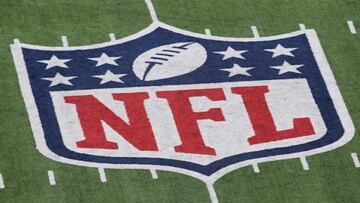What are the overtime rules for the LVII Super Bowl 2023?
The Kansas City Chiefs and Philadelphia Eagles will face off in the first Super Bowl following an overtime rule change.


Follow the Super Bowl LVII between the Chiefs and the Eagles LIVE on As.com.
Most of you probably remember where you were for the 2021 Divisional round playoff game between the Kansas City Chiefs and the Buffalo Bills, part of what some have classified as the best weekend in the history of the sport. Harrison Butker’s 49-yard field goal in the final seconds allowed the Chiefs to take the game to overtime, which they then immediately won when Travis Kelce caught an eight-yard touchdown pass from Patrick Mahomes. Bills quarterback Josh Allen and his teammates were never given the chance to touch the ball and fight back in overtime. Should something similar happen in Sunday’s Super Bowl at State Farm Stadium, the Chiefs won’t be able to defeat to the Philadelphia Eagles in similar circumstances.
As a result of that hugely dramatic but highly controversial ending, NFL owners approved a change to its overtime rules for the postseason, which objectively appear to be considerably fairer. Under the previous rules, the team that won the toss had the chance to end the game by scoring a touchdown on the first possession of overtime, which is exactly what the Chiefs achieved last January.
These are the updated @NFL overtime rules for postseason games.
— NFL Football Operations (@NFLFootballOps) February 7, 2023
You can read the exact rules changes and more here: https://t.co/TPByXJn8fC pic.twitter.com/zzE3KtmhQV
What change did the NFL make to its overtime rules?
Under the new rules, if a team scores a touchdown in those circumstances, they will line up to kick an extra point or a two-point conversion. The opposing team will then be guaranteed a possession and will also have the opportunity to score a touchdown and either match or better the first team’s points tally (the second team can try for a two-point conversion if the first team kicked just one extra point). If the teams remain level after their touchdowns, sudden-death overtime will then be played.
What are the NFL’s current overtime rules?
Related stories
The NFL’s ‘official’ rules regarding overtime, changed for the 2022 season, are as follows:
- If the score is still tied at the end of an overtime period — or if the second team’s initial possession has not ended — the teams will play another overtime period. Play will continue regardless of how many overtime periods are needed for a winner to be determined.
- There will be a two-minute intermission between each overtime period. There will not be a halftime intermission after the second period.
- The captain who lost the first overtime coin toss will either choose to possess the ball or select which goal his team will defend, unless the team that won the coin toss deferred that choice.
- Each team will have an opportunity to possess the ball in overtime.
- Each team gets three timeouts during a half.
- The same timing rules that apply at the end of the second and fourth regulation periods also apply at the end of a second or fourth overtime period.
- If there is still no winner at the end of a fourth overtime period, there will be another coin toss, and play will continue until a winner is declared.

How many times has the Super Bowl gone to overtime?
History suggests that it’s unlikely that overtime will be needed but stranger things have happened. The Super Bowl has only once gone to overtime in 56 previous editions, with Tom Brady’s New England Patriots coming from 28-3 behind to defeat the Atlanta Falcons at Super Bowl 51 in February 2017; it was the biggest comeback win in Super Bowl history. On that occasion, James White’s touchdown won the game for the Pats on the first possession in overtime, which won’t happen under the new rules.


